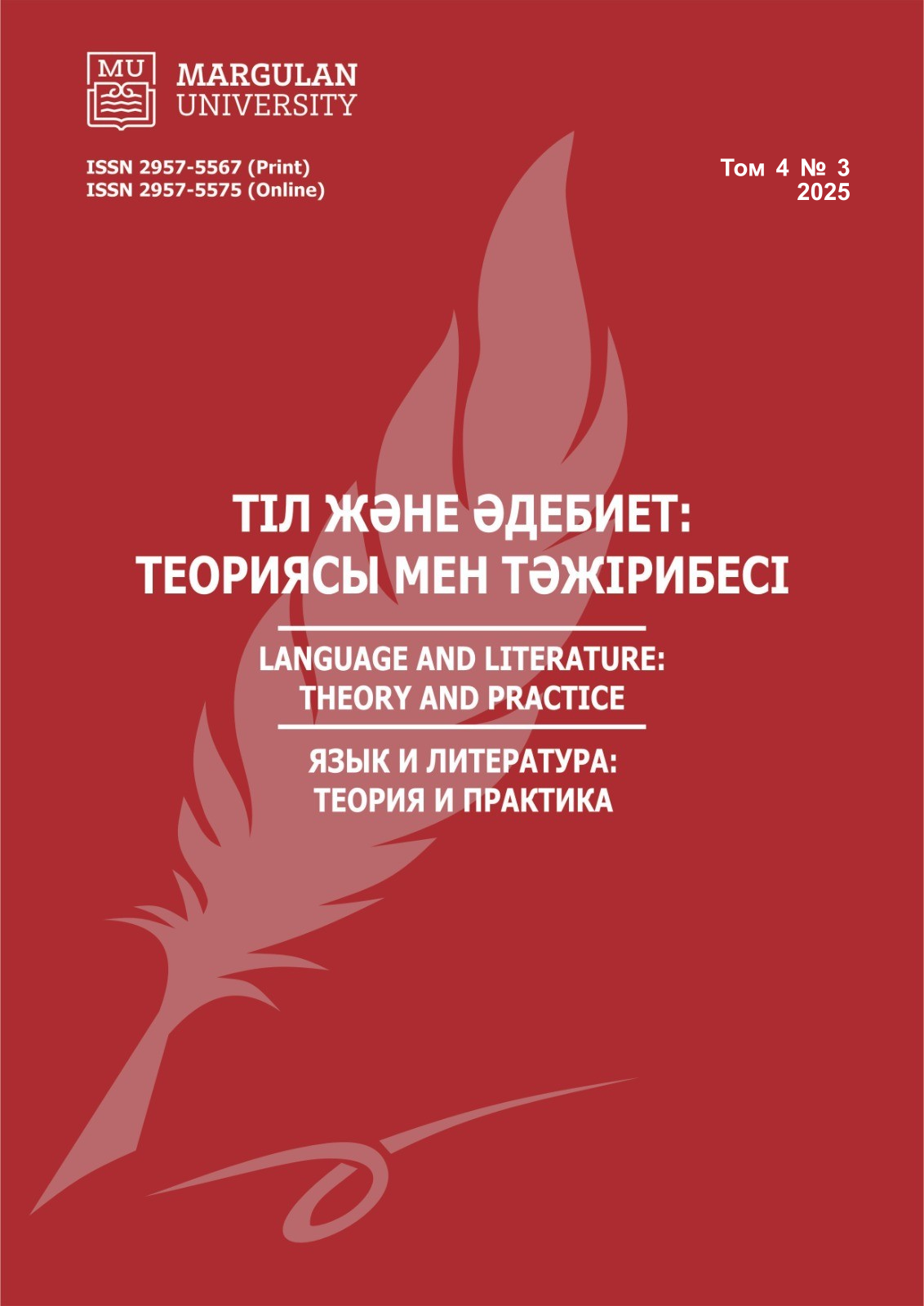LINGUISTIC CONCEPTUALIZATION OF THE VALUE CONCEPT “RESPECT” IN RUSSIAN AND KAZAKH LINGUOCULTURES
DOI:
https://doi.org/10.52301/2957-5567-2025-4-3-79-95Keywords:
linguocultural concept, respect, intercultural communication, speech etiquette, cultural norms, traditionsAbstract
The article presents a comprehensive analysis of the linguistic representation of the concept of respect in Kazakh and Russian linguocultures. Respect is considered a key communicative and axiological category manifested in formulaic expressions, metaphors, proverbs, and speech acts. The study aims to identify both universal and culturally specific features of the concept in two languages with different models of cultural organization. The empirical material includes data from the National Corpora of the Russian and Kazakh languages, media texts, dictionaries, proverbs, aphorisms, and authorial statements. A complex methodological approach is employed, combining definitional, component, contextual, axiological, and interpretive analyses with comparative and descriptive methods. The findings demonstrate that in Kazakh linguoculture, respect is predominantly expressed through ritualized forms of communication, status-based address forms, and socioculturally marked expressions that emphasize hierarchy and collectivism. In contrast, the Russian interpretation of respect emphasizes individual moral values and personal ethical judgment.
Downloads
Published
How to Cite
Issue
Section
License
Copyright (c) 2025 В. Карасик, А. Жакупова, Н. Омарова

This work is licensed under a Creative Commons Attribution-NonCommercial-NoDerivatives 4.0 International License.
https://creativecommons.org/licenses/by-nc/4.0/deed.en


